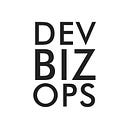A Developer-First World
Microsoft buying GitHub makes no sense. At least when you look at the traditional measures of valuation that is. For example, take Microsoft’s acquisition of LinkedIn for $26.2 billion at 7.2X revenues. And GitHub? They were acquired for 30x revenues.
For the sake of comparison, here are some other big tech acquisitions:
- Dell buys EMC for $67 billion
- Facebook buys WhatsApp for $19 billion
- Google buys Motorola Mobility for $12.5 billion
- Oracle buys PeopleSoft for $10.3 billion
- Oracle buys Sun Microsystems for $7.4 billion
- Microsoft buys Nokia for $7.2 billion
So what would make Microsoft puts $7.5 billion into something that is a mere developer tool by a company that was rapidly losing money and had no CEO for nearly a year?
For Microsoft, this is a strategic play to own more developer mindshare. Of the estimated 18.5 million professional developers (IDC), over one-quarter are .NET developers. Microsoft is already heavily invested on GitHub as a platform for .NET and their open source projects.
As Ethan Kurzweil of Bessemer Venture Partners states:
“Monday’s news cements developers’ preeminent position in the tech industry and underscores Microsoft’s steadfast commitment to becoming the company for empowering this community. It’s a return to Microsoft’s roots as a “developers as customers” company.”
For Microsoft, this is a bold stance to take a leadership role in the developer community. By owning more of the tool chain and systems developers rely upon, they solidify their standing for years to come.
However this makes sense beyond the financial or strategic considerations because we can see the future. That future is one being built by developers.
We are experiencing the next cycle of economic evolution. In the 19th and 20th centuries, the main driver of innovation, growth, and competitive advantage came from manufacturing. We have optimized manufacturing to the point that it is a commodity. Value and differentiation now come in the form of software and API’s and algorithms.
This is a developer-first world. As Joel Spolsky says, developers are writing the script to the future. Software may be eating the world, but developers are the ones enjoying the feast. Behind the apps are the developers making decisions big and small with how you relate to and engage with the world. The broader implication is that everything is now an input into software.
Because of this, developers have more freedom and are using that freedom by yielding greater spending power and influence. Take tool decisions that used to be exclusively driven by centralized IT. Now developers can sign up for most tools armed with nothing more than a credit card.
“Today developers may be the most important decision maker in the technology space with more control over spending than ever before.”
The result is BYODT, or Bring Your Own Dev Tool, a movement now seeping into enterprises. GitHub has had an appreciable uptake by global companies, even in regulated industries like banking. Why? Because developers prefer GitHub much in the way developers gravitate towards Stack Overflow and Slack for tools or React and Python for languages. It is what makes them productive and enjoy their work more.
As we enter this developer-first era, how is your company reacting? Are you a developer first organization or are developers still second-class citizens?
What does it mean to “burn a zero-day”?
Good discussion around zero-day exploits…
We help IT leaders in enterprises solve the cultural challenges involved in digital transformation and move towards a community based culture that delivers innovation and customer value faster. Learn more about our work here.
